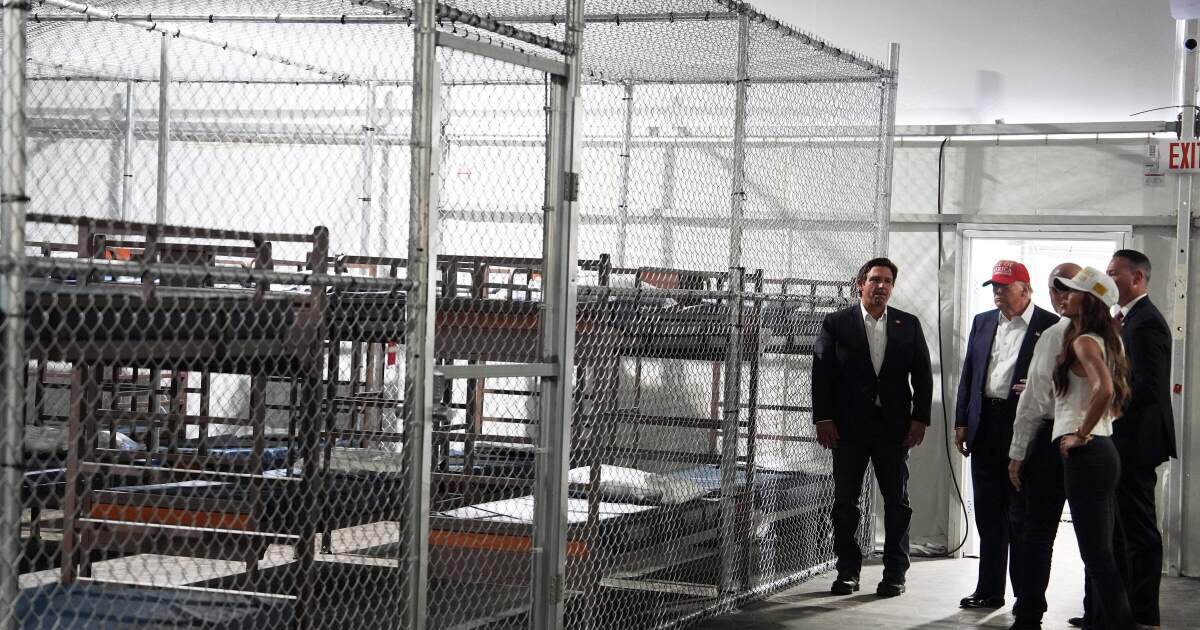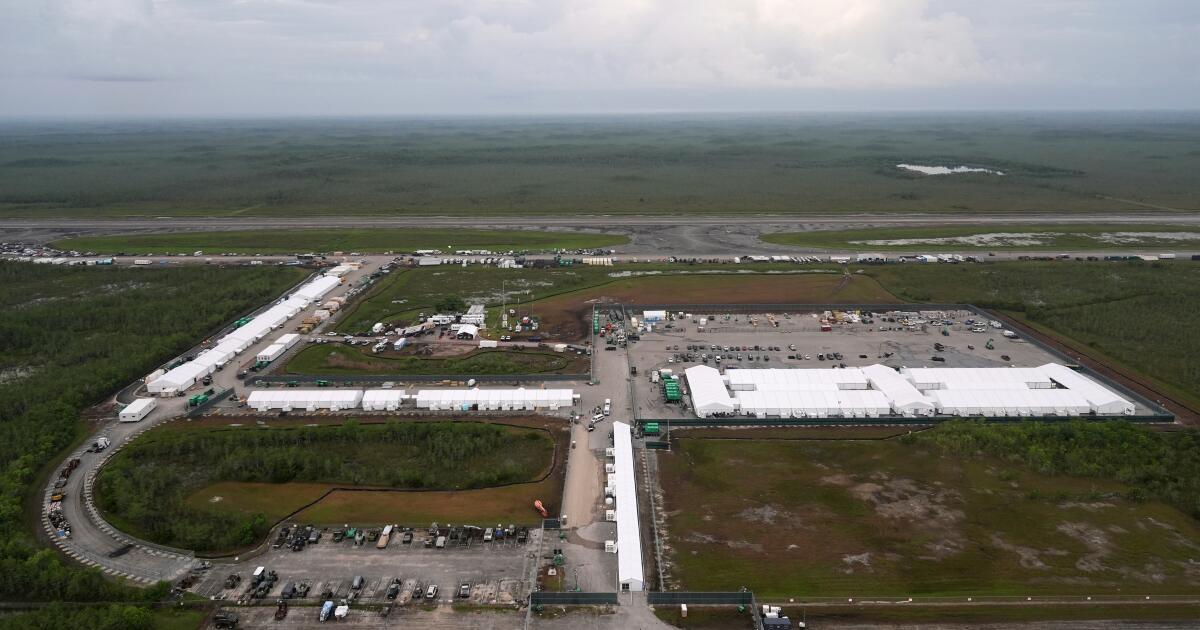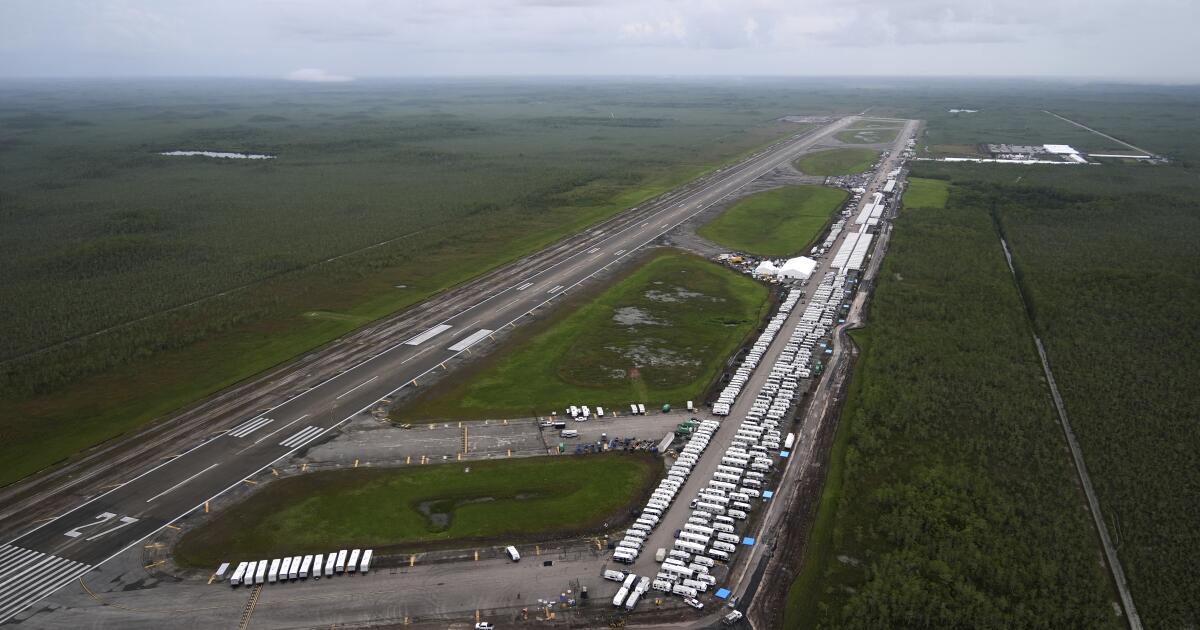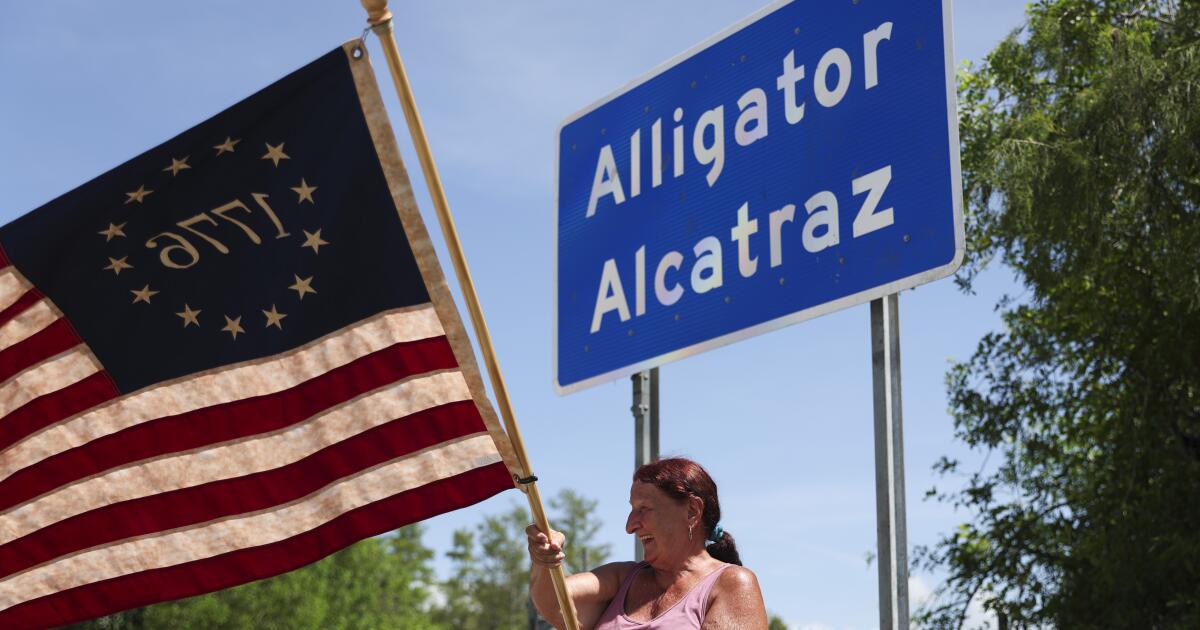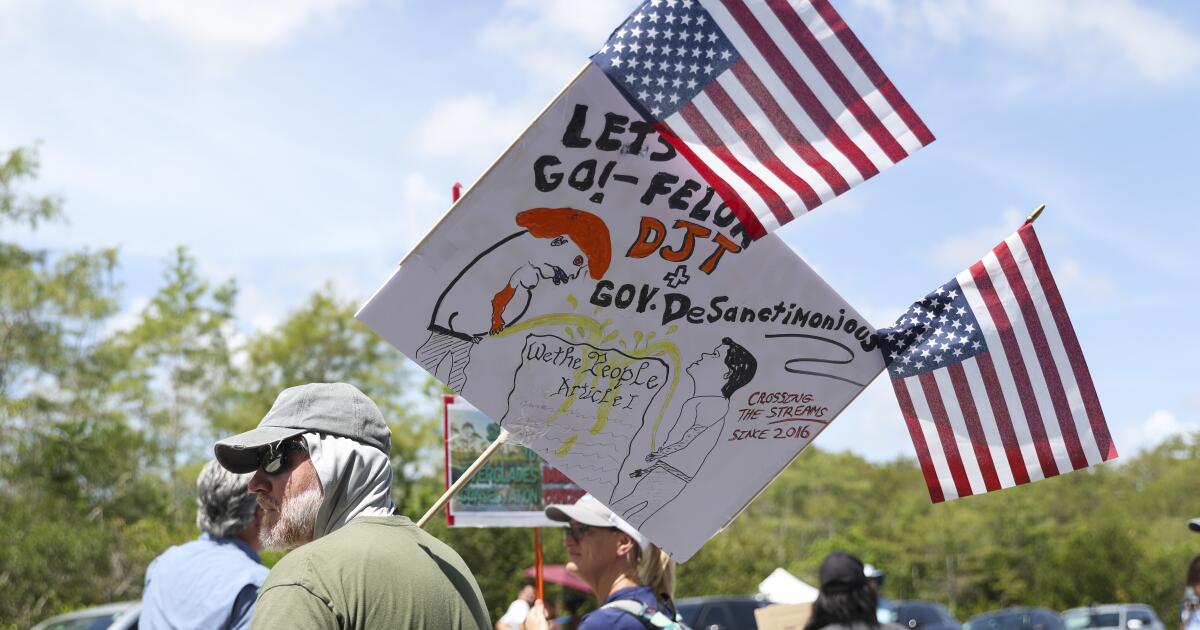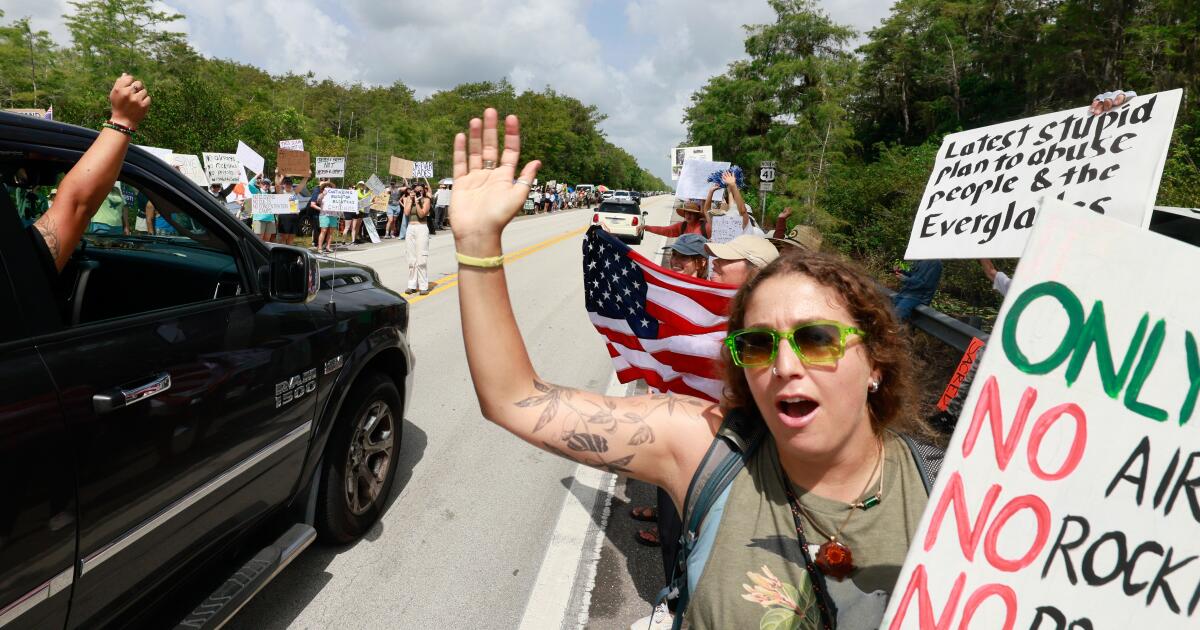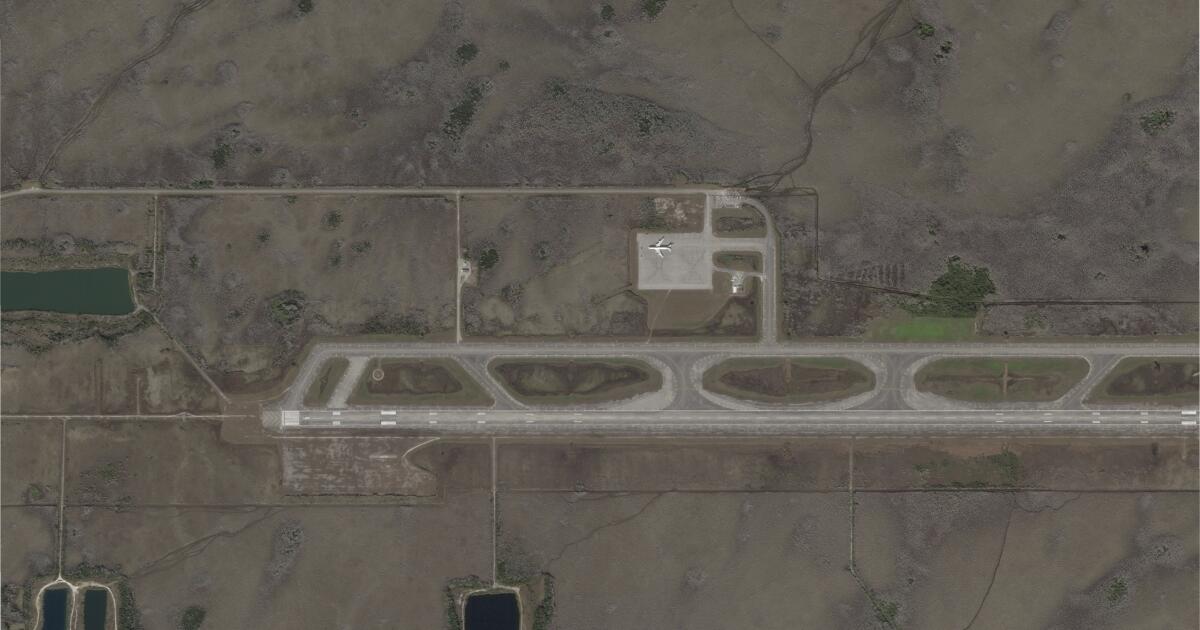DOJ lawyers admit some ‘Alligator Alcatraz’ detainees probably never entered removal proceedings
ORLANDO, Fla. — U.S. government lawyers say that detainees at the immigration detention center in the Florida Everglades known as “Alligator Alcatraz” probably include people who have never been in removal proceedings, which is a direct contradiction of what Florida Gov. Ron DeSantis has been saying since it opened in July.
Attorneys for the U.S. Department of Justice made that admission Thursday in a court filing arguing that the detainees at the facility in the Everglades wilderness don’t have enough in common to be certified as a class in a lawsuit over whether they’re getting proper access to attorneys.
A removal proceeding is a legal process initiated by the U.S. Department of Homeland Security to determine if someone should be deported from the United States.
The Justice Department attorneys wrote that the detainees at the Everglades facility have too many immigration statuses to be considered a class.
“The proposed class includes all detainees at Alligator Alcatraz, a facility that houses detainees in all stages of immigration processing — presumably including those who have never been in removal proceedings, those who will be placed into removal proceedings, those who are already subject to final orders of removal, those subject to expedited removal, and those detained for the purpose of facilitation removal from the United States pursuant to a final order of removal,” they wrote.
Since the facility opened, DeSantis has been saying publicly that each detainee has gone through the process of determining that they can’t legally be in the United States.
During a July 25 news conference outside the detention center, DeSantis said, “Everybody here is already on a final removal order.”
“They have been ordered to be removed from the country,” he added.
At a July 29 speech before a conference of the Florida Sheriffs Assn., the Republican governor said, “The people that are going to the Alligator Alcatraz are illegally in the country. They’ve all already been given a final order of removal.”
He added, “So, if you have an order to be removed, what is the possible objection to the federal government enforcing that removal order?”
DeSantis’ press office didn’t respond Monday morning to an email seeking comment.
The court filing by the Justice Department attorneys was made in a lawsuit in which civil rights groups allege the facility’s detainees have been denied proper access to attorneys in violation of their constitutional rights. The civil rights groups on Thursday asked a federal judge in Fort Myers, Fla., for a preliminary injunction that would establish stronger protections for detainees to meet with attorneys privately and share documents confidentially.
The court case is one of three lawsuits filed by environmental and civil rights groups over the detention center, which was hastily built this summer by the state of Florida and operated by private contractors and state agencies.
A federal judge in Miami ordered in August that the facility must wind down operations within two months, agreeing with environmental groups that the remote airstrip site wasn’t given a proper environmental review before it was converted into an immigration detention center. But operations continued after the judge’s preliminary injunction was put on hold in early September by an appellate court panel. At one point, the facility held more than 900 detainees, but most of them were transferred after the initial injunction. It wasn’t clear on Monday how many detainees were at the center, which was built to hold 3,000 people.
President Trump toured the facility in July and suggested it could be a model for future lockups nationwide as his administration pushes to expand the infrastructure needed to increase deportations. Federal officials on Friday confirmed that Florida has been approved for a $608-million reimbursement for the costs of building and running the immigration detention center.
Schneider writes for the Associated Press.
